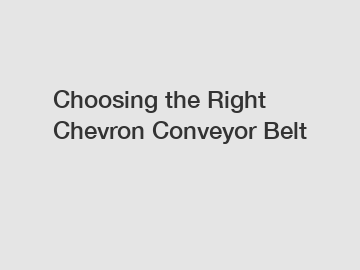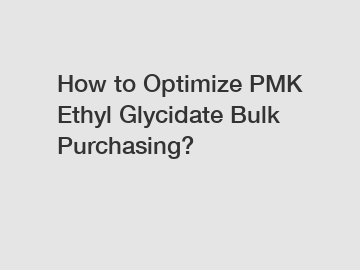What is Polypropylene Carbonate Used For?
Jul. 02, 2024
What is Polypropylene Carbonate Used For?
Mar. 14,
What is Polypropylene Carbonate Used For?
Mar. 14,
Polypropylene carbonate (PPC) is a versatile polymer that finds applications in various industries due to its unique properties and characteristics. From biodegradable plastics to pharmaceuticals, PPC offers a range of benefits that make it suitable for diverse uses. Understanding the applications of PPC is essential for appreciating its importance in different sectors.
PPC Plant
Biodegradable Plastics
One of the significant uses of polypropylene carbonate is in the production of biodegradable plastics. PPC can be polymerized with other monomers to create biodegradable polymers with excellent mechanical properties and biocompatibility. These biodegradable plastics are environmentally friendly alternatives to traditional plastics, reducing the accumulation of non-biodegradable waste in landfills and oceans. They find applications in packaging, agricultural films, disposable utensils, and other single-use products.
Polymer Electrolytes
Polypropylene carbonate is also utilized in the synthesis of polymer electrolytes for batteries and energy storage devices. PPC-based polymer electrolytes offer high ionic conductivity, good mechanical strength, and thermal stability, making them suitable for use in lithium-ion batteries and supercapacitors. These electrolytes play a crucial role in improving the performance and safety of rechargeable energy storage systems, contributing to the advancement of electric vehicles and portable electronics.
Drug Delivery Systems
In the pharmaceutical industry, polypropylene carbonate is employed in the development of drug delivery systems. PPC-based polymers can be formulated into nanoparticles, micelles, or hydrogels to encapsulate and deliver therapeutic agents such as drugs or proteins. These drug delivery systems offer controlled release kinetics, enhanced bioavailability, and targeted delivery to specific tissues or organs. PPC-based carriers are used in various applications, including cancer therapy, gene delivery, and regenerative medicine.
Coatings and Adhesives
PPC coatings and adhesives are utilized in various industrial and consumer applications. PPC-based coatings provide excellent barrier properties, corrosion resistance, and chemical inertness, making them suitable for protective coatings on metal substrates, automotive components, and electronic devices. PPC adhesives offer strong bonding characteristics and compatibility with a wide range of substrates, including plastics, metals, and ceramics. They are used in automotive assembly, construction, packaging, and other bonding applications.
Textiles and Fibers
Polypropylene carbonate is incorporated into textiles and fibers to impart desirable properties such as moisture absorption, softness, and durability. PPC-based fibers are used in clothing, upholstery, carpets, and technical textiles. These fibers offer advantages such as breathability, wrinkle resistance, and resistance to microbial growth. PPC-blended textiles find applications in sportswear, outdoor gear, medical textiles, and home furnishings.
Conclusion
Polypropylene carbonate is a versatile polymer with a wide range of applications across various industries. From biodegradable plastics to pharmaceuticals, coatings, textiles, and beyond, PPC offers unique properties that make it valuable for diverse uses. Its biodegradability, biocompatibility, mechanical strength, and thermal stability contribute to its suitability for applications ranging from sustainable packaging to advanced drug delivery systems and energy storage technologies.
Understanding the uses of polypropylene carbonate underscores its importance in addressing contemporary challenges such as environmental sustainability, healthcare, and technological innovation. As research and development efforts continue to expand, PPC is likely to find even more applications and contribute to advancements in materials science and technology.
For inquiries about polypropylene carbonate or to find a reliable supplier, please don't hesitate to contact us.
QPAC®40 poly(propylene carbonate)
QPAC®40 is available in the following forms:
- Pellet
- Film
- Aqueous Dispersion/Emulsion
- Solution
What are the applications for QPAC®40?
QPAC®40 poly(propylene carbonate) is used as a binder with ceramic, metal, or glass powders to make high purity technical parts, pastes, inks, and coatings. Sacrificial structural applications include decomposable channel former and pore former. Non-binder applications include barrier film in plastic processing.
Key Benefits Include:
- Excellent adhesion and improved lubricity
- Co-firing in any atmosphere without oxidation
- Outstanding green strength
- Complete and clean burnout leaving less than 10 ppm ash residue, resulting in superb mechanical and/or electrical properties
- Low-temperature decomposition is excellent for thermally sensitive materials and is more efficient than other binders
- Products of combustion are only carbon dioxide & water
- Excellent viscosity properties in ink/paste systems
- Decomposition occurs in a wide range of atmospheres, including air, oxygen, nitrogen, hydrogen, argon, and vacuum
- Range of molecular weights from 100,000 to 300,000
Typical Physical Properties of QPAC®40
PropertyValueDensity (g/cm3)1.26Refractive Index 1.463Decomposition Temperature (°C) 250 (estimate)Glass Transition Temperature (°C) 15-40Heat of combustion (cal/gm)4,266Heat of formation (cal/mol)-146,000Molar Mass of repeating unit102.1SolubilityUpon requestThermogravimetric analysis of QPAC®40
Recommended article:Key Questions to Consider When Purchasing a Portable Air Purifier
10 Questions You Should Know About Using a Hyperbaric Chamber for Recovery
How does magnesium oxide improve flour quality?
Magnesium Oxide for Flour Improver: Benefits in 2024
Masterbatch Colorant: Your Guide to Vibrant, Cost-Effective Solutions
How Masterbatch Colorants Transform Sustainable Packaging Choices?
The Benefits of Making a 6303 21 5 Bulk Order
Polypropylene carbonate (PPC) is a versatile polymer that finds applications in various industries due to its unique properties and characteristics. From biodegradable plastics to pharmaceuticals, PPC offers a range of benefits that make it suitable for diverse uses. Understanding the applications of PPC is essential for appreciating its importance in different sectors.
PPC Plant
Biodegradable Plastics
One of the significant uses of polypropylene carbonate is in the production of biodegradable plastics. PPC can be polymerized with other monomers to create biodegradable polymers with excellent mechanical properties and biocompatibility. These biodegradable plastics are environmentally friendly alternatives to traditional plastics, reducing the accumulation of non-biodegradable waste in landfills and oceans. They find applications in packaging, agricultural films, disposable utensils, and other single-use products.
Polymer Electrolytes
Polypropylene carbonate is also utilized in the synthesis of polymer electrolytes for batteries and energy storage devices. PPC-based polymer electrolytes offer high ionic conductivity, good mechanical strength, and thermal stability, making them suitable for use in lithium-ion batteries and supercapacitors. These electrolytes play a crucial role in improving the performance and safety of rechargeable energy storage systems, contributing to the advancement of electric vehicles and portable electronics.
Drug Delivery Systems
In the pharmaceutical industry, polypropylene carbonate is employed in the development of drug delivery systems. PPC-based polymers can be formulated into nanoparticles, micelles, or hydrogels to encapsulate and deliver therapeutic agents such as drugs or proteins. These drug delivery systems offer controlled release kinetics, enhanced bioavailability, and targeted delivery to specific tissues or organs. PPC-based carriers are used in various applications, including cancer therapy, gene delivery, and regenerative medicine.
Coatings and Adhesives
PPC coatings and adhesives are utilized in various industrial and consumer applications. PPC-based coatings provide excellent barrier properties, corrosion resistance, and chemical inertness, making them suitable for protective coatings on metal substrates, automotive components, and electronic devices. PPC adhesives offer strong bonding characteristics and compatibility with a wide range of substrates, including plastics, metals, and ceramics. They are used in automotive assembly, construction, packaging, and other bonding applications.
Textiles and Fibers
For more MMA Plantinformation, please contact us. We will provide professional answers.
Polypropylene carbonate is incorporated into textiles and fibers to impart desirable properties such as moisture absorption, softness, and durability. PPC-based fibers are used in clothing, upholstery, carpets, and technical textiles. These fibers offer advantages such as breathability, wrinkle resistance, and resistance to microbial growth. PPC-blended textiles find applications in sportswear, outdoor gear, medical textiles, and home furnishings.
Conclusion
Polypropylene carbonate is a versatile polymer with a wide range of applications across various industries. From biodegradable plastics to pharmaceuticals, coatings, textiles, and beyond, PPC offers unique properties that make it valuable for diverse uses. Its biodegradability, biocompatibility, mechanical strength, and thermal stability contribute to its suitability for applications ranging from sustainable packaging to advanced drug delivery systems and energy storage technologies.
Understanding the uses of polypropylene carbonate underscores its importance in addressing contemporary challenges such as environmental sustainability, healthcare, and technological innovation. As research and development efforts continue to expand, PPC is likely to find even more applications and contribute to advancements in materials science and technology.
For inquiries about polypropylene carbonate or to find a reliable supplier, please don't hesitate to contact us.
QPAC®40 poly(propylene carbonate)
QPAC®40 is available in the following forms:
- Pellet
- Film
- Aqueous Dispersion/Emulsion
- Solution
What are the applications for QPAC®40?
QPAC®40 poly(propylene carbonate) is used as a binder with ceramic, metal, or glass powders to make high purity technical parts, pastes, inks, and coatings. Sacrificial structural applications include decomposable channel former and pore former. Non-binder applications include barrier film in plastic processing.
Key Benefits Include:
- Excellent adhesion and improved lubricity
- Co-firing in any atmosphere without oxidation
- Outstanding green strength
- Complete and clean burnout leaving less than 10 ppm ash residue, resulting in superb mechanical and/or electrical properties
- Low-temperature decomposition is excellent for thermally sensitive materials and is more efficient than other binders
- Products of combustion are only carbon dioxide & water
- Excellent viscosity properties in ink/paste systems
- Decomposition occurs in a wide range of atmospheres, including air, oxygen, nitrogen, hydrogen, argon, and vacuum
- Range of molecular weights from 100,000 to 300,000
Typical Physical Properties of QPAC®40
PropertyValueDensity (g/cm3)1.26Refractive Index 1.463Decomposition Temperature (°C) 250 (estimate)Glass Transition Temperature (°C) 15-40Heat of combustion (cal/gm)4,266Heat of formation (cal/mol)-146,000Molar Mass of repeating unit102.1SolubilityUpon requestThermogravimetric analysis of QPAC®40
For more information, please visit UHMWPE Plant.
How to Place a 6303 21 5 Bulk Order?
40 CFR Part 712 -- Chemical Information Rules
Electric vs. Liquid Nitrogen Cryotherapy: Which One Do I ...
How to Save Money When Buying China Suppliers of Carboxylated Styrene-Butadiene Latex
Boost Your Business: Smart Bulk Buying of PMK Oil (CAS 28578-16-7)
How to Buy CAS 28578-16-7 PMK Oil in Bulk?
Top 5 Places to Buy a Cryotherapy Chamber Today!
245
0
0
Related Articles










Comments
All Comments (0)